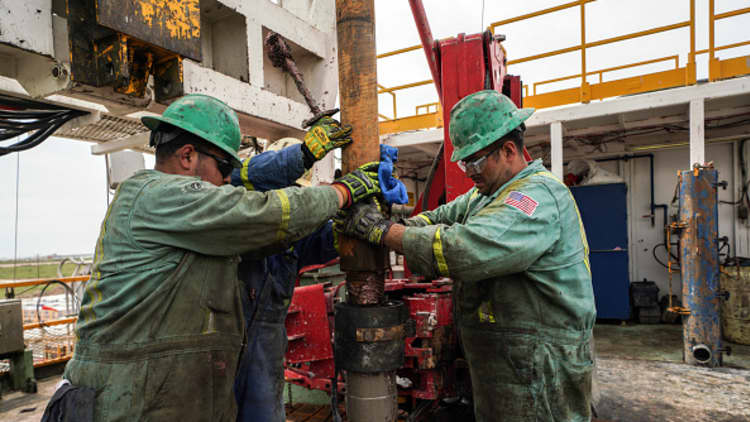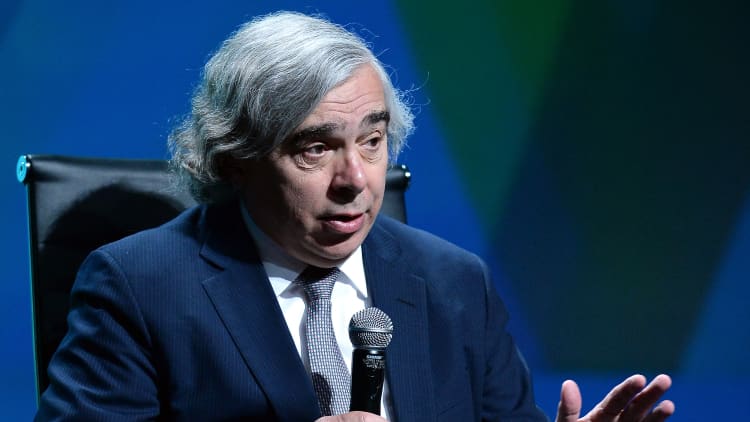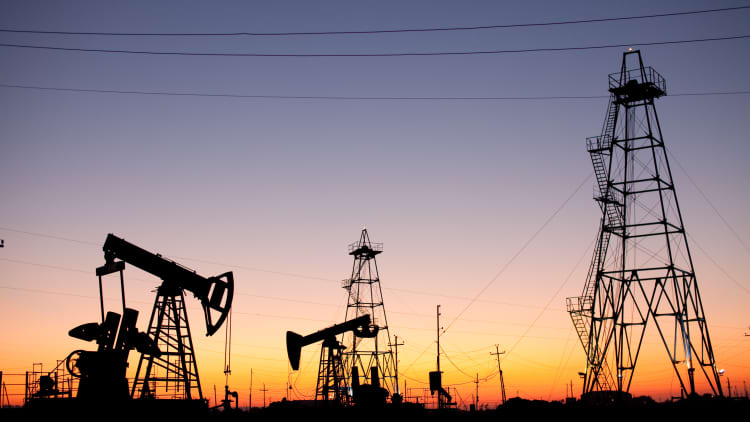
Oil prices surged on Tuesday following reports that ongoing talks between OPEC and its allies, known as OPEC+, remain possible. The move came despite a possible increase in production from Saudi Arabia and Russia.
Speaking to reporters Tuesday, Russian Energy Minister Alexander Novak said that Moscow had not ruled out measures with OPEC to stabilize oil markets, according to Interfax news agency. Russia's energy ministry has proposed holding a meeting with Russian oil companies on Wednesday, Reuters reported, citing two unnamed sources.
International benchmark Brent crude gained $2.86, or 8.3%, to settle at $37.22 per barrel, while U.S. West Texas Intermediate futures surged 10.38%, or $3.23, to settle at $34.36 per barrel.
Tuesday's jump follows steep declines on Monday, which which saw WTI and Brent drop 24% for their worst decline since 1991. Both contracts closed at a more than 4-year low.
Saudi Aramco CEO Amin Nasser said on Tuesday that the kingdom plans to supply a record 12.3 million barrels per day (bpd) in April, well above current production level of 9.7 million bpd.

In response, Novak said that Russian oil companies may boost output by up to 300,000 barrels per day, according to a report from Reuters, while noting that the country has the ability to increase production by as much as 500,000 barrels per day.
This potential oversupply comes at a time when oil prices were already moving lower after the coronavirus outbreak and subsequent travel slowdown has led to soft demand for crude.
"We could be in a situation where Saudi ramps up production, and the Russians raise production, so in that type of situation when there's so much concern about demand this would be a really negative impact for oil prices," RBC head of commodity research Helima Croft said Tuesday on CNBC's "Squawk Box." "I think we would be talking about oil in the $20s in such a scenario," she said.
Croft added that should this situation play out, it would be the first of its kind.
"We have not had a situation before where we've been in a demand crash where the producers have put millions of additional barrels on the market. This would be an almost unprecedented situation," she said.
Escalating tensions
Monday's steep sell-off came as tensions between Saudi Arabia and Russia escalated, following a breakdown of talks between OPEC and its allies in Vienna.
On Friday, OPEC ally Russia rejected the additional 1.5 million barrel per day production cut that the 14-member cartel proposed. After the unsuccessful talks concluded, OPEC's de facto leader Saudi Arabia on Saturday slashed its official oil prices.
The current production cuts expire at the end of March, which means that beginning April 1 nations can pump as much oil as they want.
As prices sank on Monday, the U.S. Department of Energy said the Trump administration was monitoring the situation.
"These attempts by state actors to manipulate and shock oil markets reinforce the importance of the role of the United States as a reliable energy supplier to partners and allies around the world," the statement said. "The United States, as the world's largest producer of oil and gas, can and will withstand this volatility. The growth of the unconventional oil and gas industry in the United States has led to a more secure, resilient and flexible market."
WATCH: Tudor, Pickering Holt's Michael Bradley weighs in on oil collapse

—CNBC's Eustance Huang, Sam Meredith and Reuters contributed to this report.


